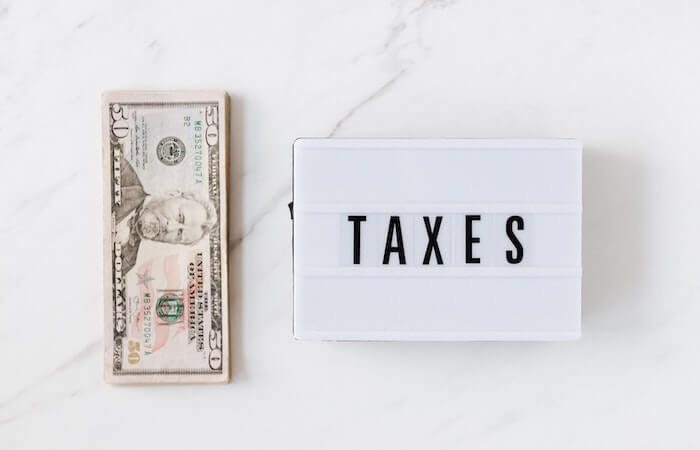We hope you love the products we recommend! Just so you know, Trendy Mami may collect a share of sales or other compensations from the links on this page.
–
We’ve heard the story many times before: you’ve started a business with stars in your eyes. You finally quit your old job and switched over to what you truly loved. You’ve developed a company, and you’re killing it! But then, January comes. And suddenly, it’s time for taxes. If you’re like most people, taxes are confusing and stressful. But that doesn’t mean they have to be hard! Here is some tax prep for small business ventures. Follow these tips, and you’ll be better set up for tax season success!
5 Tips for Tax Prep for Small Business
1. Hire a Good Accountant
If you haven’t yet, you should hire an experienced accountant to handle your tax season. Some small business workers think they can handle everything themselves, but this is often a mistake. Running a business takes a lot of work, making it easy for you to overlook something. So, even if you have an accounting background, you’ll probably benefit from hiring an accountant.
To find a great accountant, first learn the type of certification you should look for. Many accountants have Bachelor’s degrees in business or a related field. Some accountants also have other certifications. In particular, you should look for a Certified Public Accountant (CPA). If the accountant has additional certifications, that’s even better!
2. Know Where to File
Figuring out small business taxes is tough for new entrepreneurs and seasoned ones alike. When you use H&R Block, though, you don’t have to worry about forgetting to fill out any categories or not being able to get your tax questions answered. Their products allow you to file online on your own and take you through each step of the process. You can also get your questions answered if you have them! H&R pro employs tax experts who will be eager to answer any inquiries that come up while you’re filing your taxes. Until April 18th, you can save on their tax filing products!
3. Keep Great Records

There’s nothing that spells tax prep for small business disasters than not being able to find the right information when you need it. Solving this problem requires a bit of planning, but if you do it right, you’ll have better tax preparation for small businesses.
All year round, keep detailed records of everything you make and spend. This means capturing all your company’s streams of income, carefully recording expenses, and keeping it all in an organized space. If you’re keeping it in a space that’s accessible to multiple people, make sure you take steps to ensure client information remains private.
4. Maintain Your Payroll
Many people don’t think too much about taxes until the tax season arrives. But businesses should think about it all year long. After all, many employers take taxes out of employee checks for them. This makes it easier for the employee to handle their taxes and serves as a great incentive for them to keep working for you.
But knowing how much to take out of your employees’ taxes can get difficult. Tax percentages change based on where the employee is located. So, a worker who does their job in a different state might have different tax requirements.
You can have a look at Paychex for Payroll services. It offers integrated human capital management solutions for payroll, benefits, human resources, insurance, and more
To avoid confusion, work with a payroll company. Quickbooks helps you pay employees and keep track of your other income and expenses!
5. Keep Personal and Business Expenses Separate
This may sound easy, but many small business owners find it difficult. After all, many startups struggle in their first few years of operation. Since this is your passion project, you might want to dip into your personal account to keep the company thriving.
But if some expenses came from you, the IRS could start looking at your personal accounts. In addition, you might have a harder time if your business gets audited.
It’s also best to learn to budget based solely on what your business makes.
As such, get a separate bank account and credit card for your company. Limit who has access to this information, and try not to let your expenses overlap.
6. Make Sure Your Business Is Correctly Classified
If you fail to register with the government under the correct type of business, you may end up with more taxes than necessary. Usually, you register your business before you launch it. Attorneys and accountants can help you determine what type of business classification is best for you.
Start Filing!

The right time to start your tax prep for small business ventures is right now. With tax season coming up, you’ll want to make sure you have everything possible on hand. Check out these tips for preparing for tax season if you want more advice!













